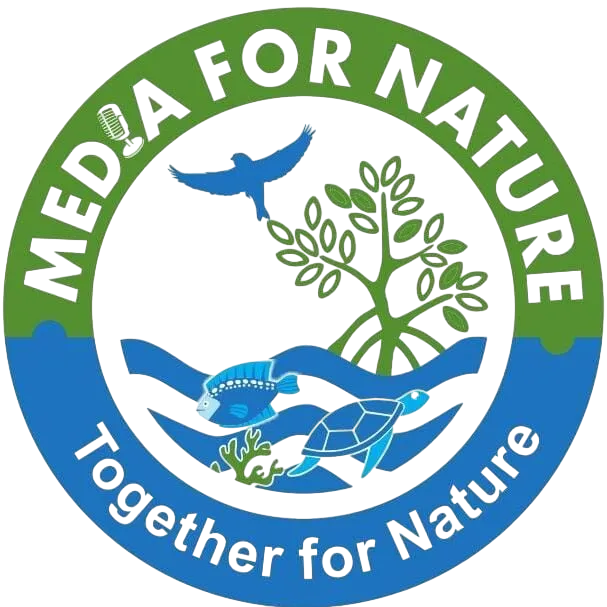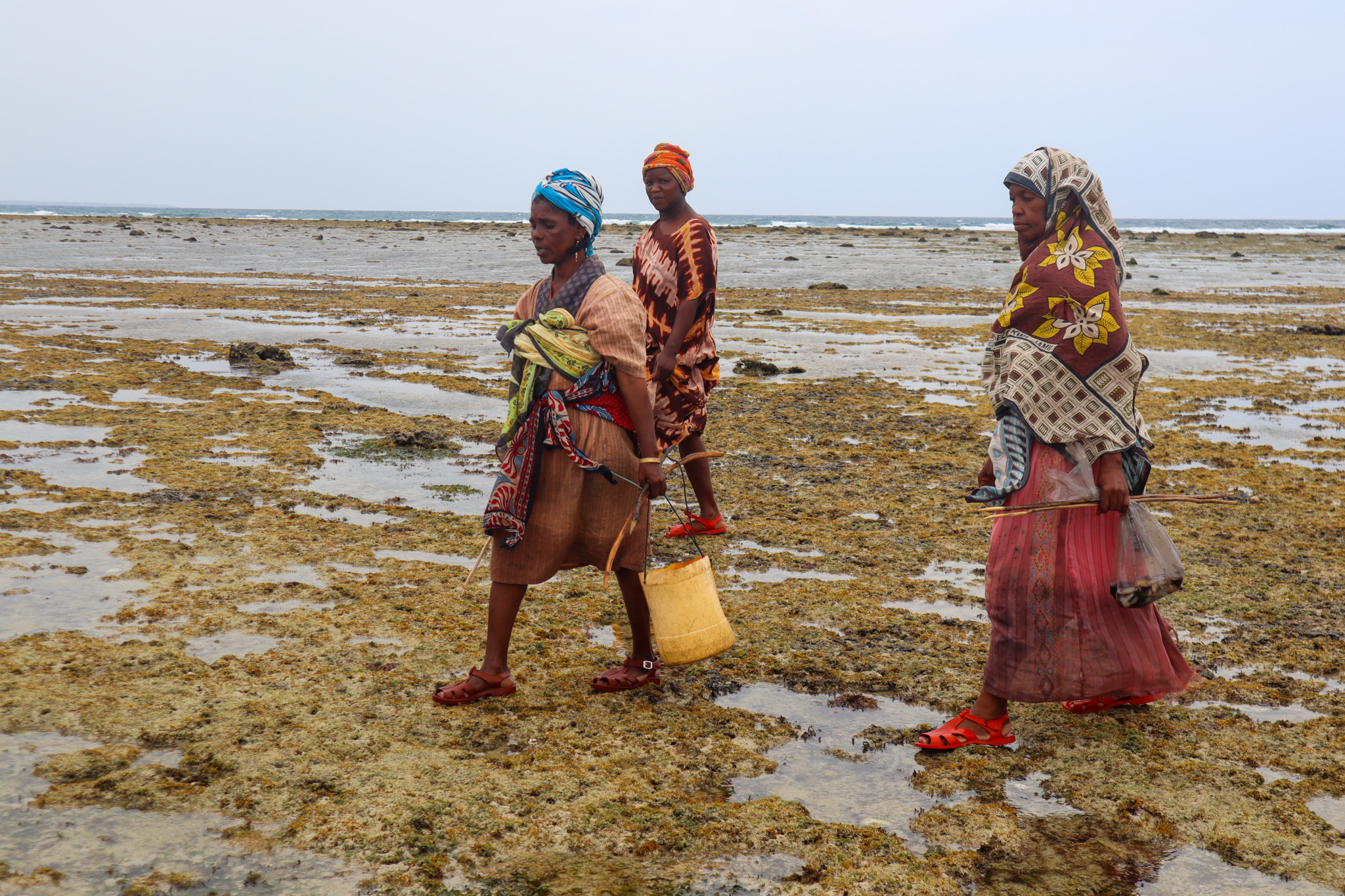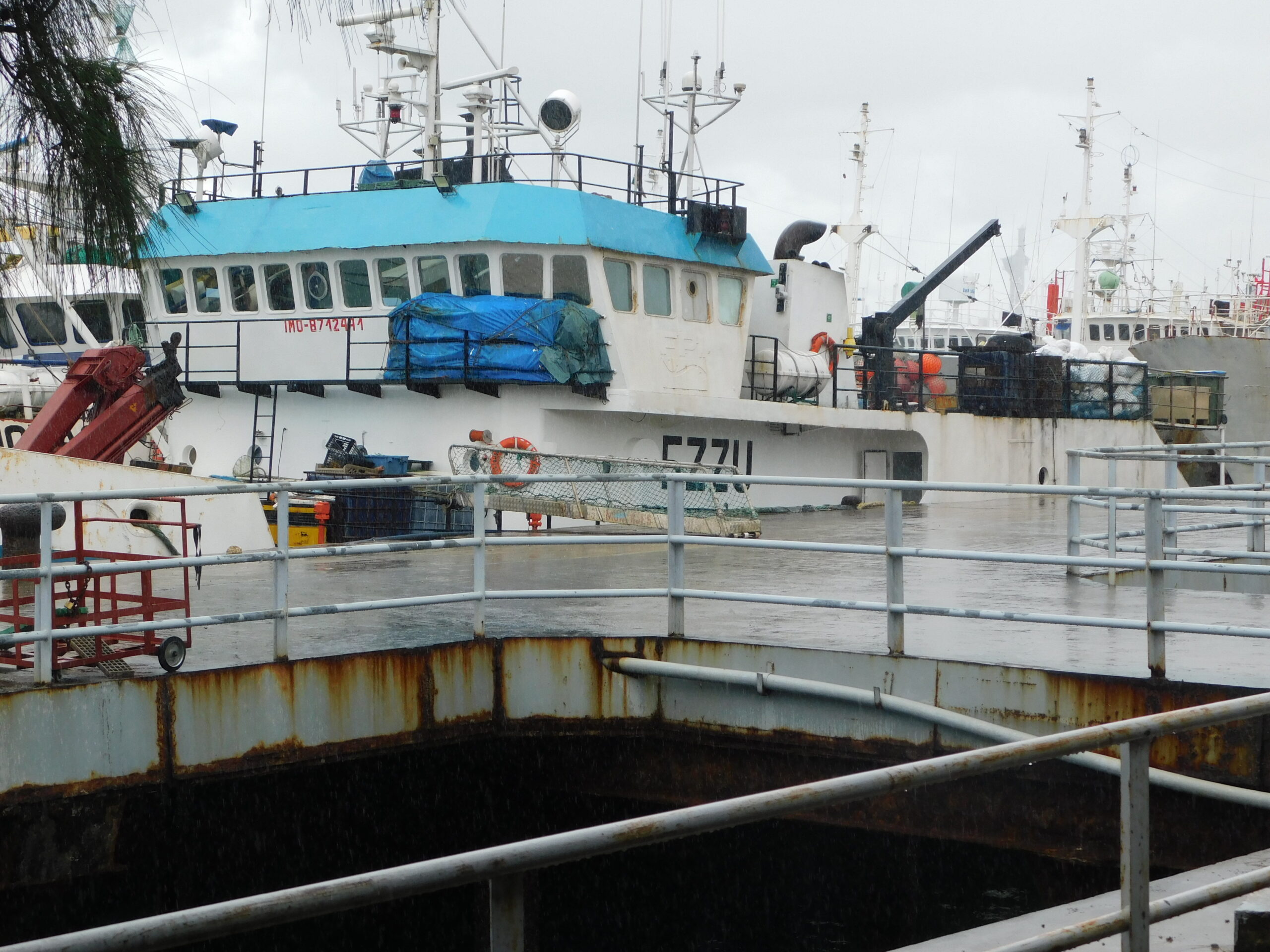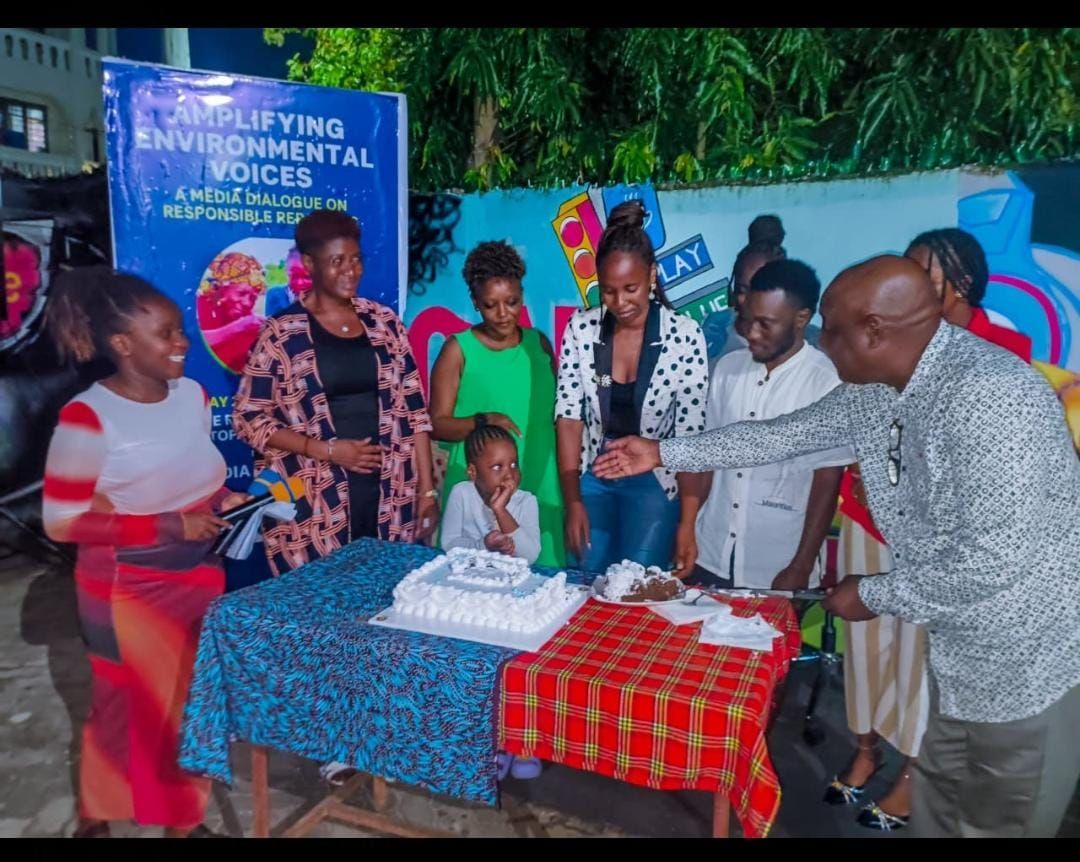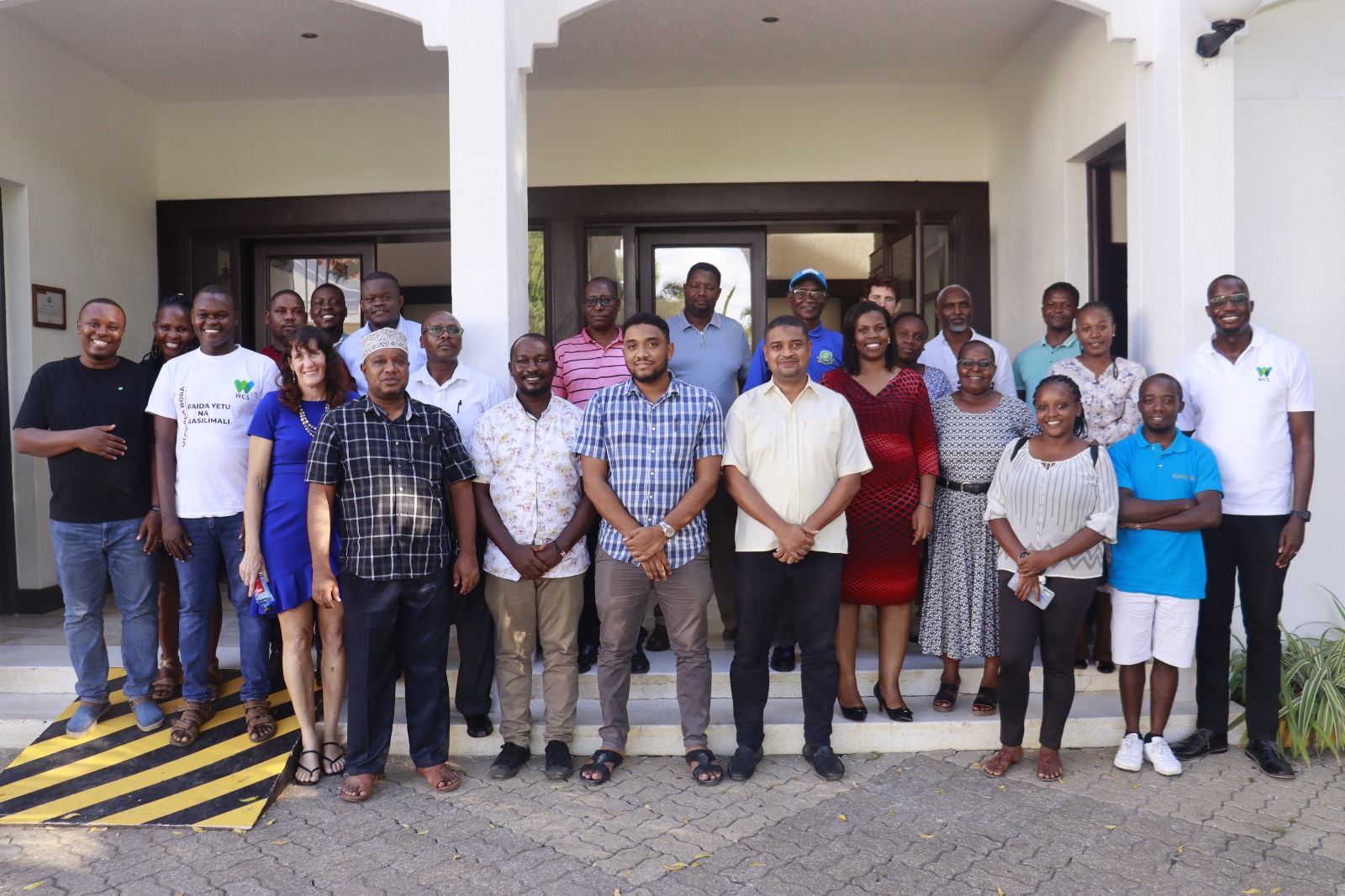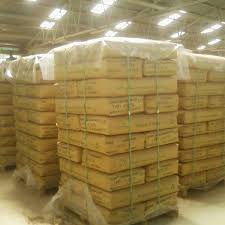Octopus Gleaners from Mkwiro BMU within Shimoni-Vanga seascape. Women are taking an active role in fisheries and the conservation of marine ecosystems. Photo credit| Catherine Muyonga
A visit to several Beach Management Units (BMUs) within the Shimoni-Vanga Seascape one thing that cuts across these groups is the creation and management of community conservation areas.
The conserved areas which in some cases come as complete no- take- zones have made local communities play a pivotal role in the conservation of the marine resources under their jurisdictions.
In Shimoni, the BMU is managing about 1.5 hectares in the ocean which has been conserved for coral restoration at Changai area within the Shimoni co-management area.
Although started about three years ago, Shimoni BMU Chairperson Rishadi Hamisi said there are some positive changes that have started manifesting thanks to the austerity measures taken by the local community.
“Some marine species that had disappeared such as turtles have come back because of the tranquility that has been restored.
“This area had been turned into a place for recreation and because of so much noise and human activities and use of harmful fishing gear, some fish species disappeared,” he said.
In Mkwiro, BMU Chairperson Mtengo Makame said the conservation efforts have seen enhanced participation of women in fisheries activities. Culturally, women were prohibited from fishing activities including holding positions in the BMU. That has now changed.
One of the activities that is raising the participation of women in fishing is octopus gleaning, and planned octopus closure within the Mkwiro co-management area.
The Mkwiro BMU has identified an area for the establishment of an octopus closure, and an assessment will be undertaken on the selected area to ascertain its suitability for the closure. The BMU has already secured funding to implement the initiative. The closure will be opened during specific times of the year for fishing based on the management plan that will be adopted.
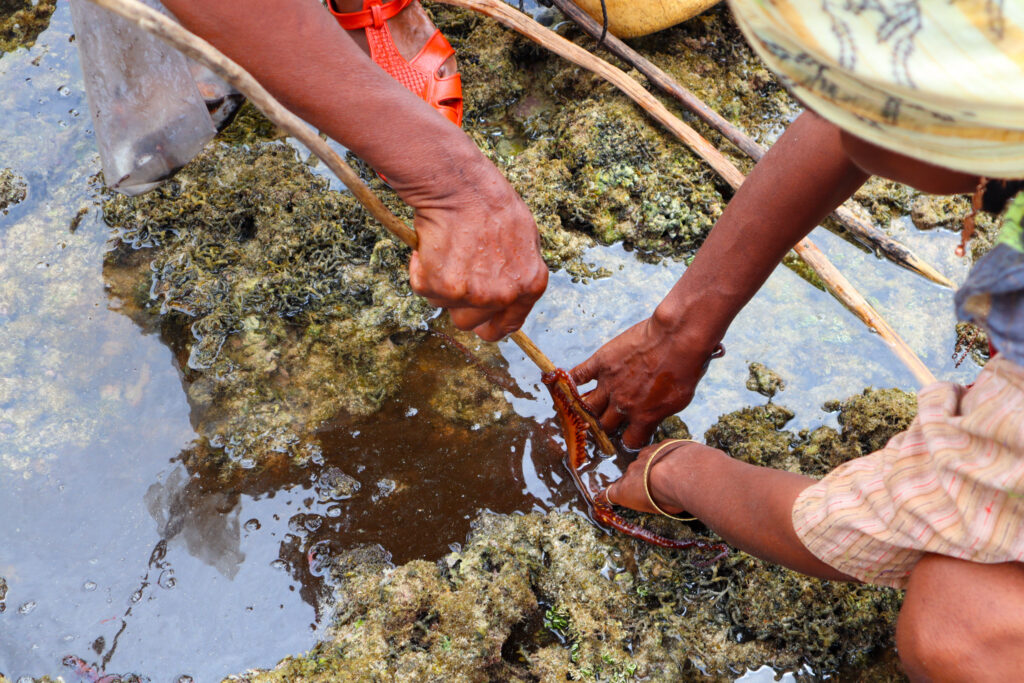
Octopus gleaners at work. Photo credit| Catherine Muyonga.
This will enable more women to take part in the fishing of octopus on shallow waters of the ocean as well as conserving the area in the fight against illegal fishing that destroys corals and other marine resources.
Khadija Mohamed, a member of the Mkwiro BMU says the measures taken to protect the environment have seen more women involved in fisheries and generating income.
“We have taken the issue seriously, especially on the octopus gleaning that has enabled us to go to the sea to fish thus widening the income bracket for women who traditionally were limited to being fish vendors.
“We are already involved in seaweed farming as an income generating activity which means more women will be visible in the fishing sector,” she said.
Makame says the activities that the BMU has lined up are geared towards restoring the ecosystem so that the local community can benefit more from the resources within their reach.
“We noted as a BMU that fishing activities were going down due to dwindling fish stocks and we realized that illegal fishing was destroying corals.
“We were advised to start doing coral restoration and close the area for fishing activities. What we are planning to do now is to go into eco-tourism in the area that is now rich in biodiversity and the best for snorkeling,” said Makame.
Kibuyuni Beach Management Unit too had a story to tell about the local co-management area, which, despite a few challenges have managed to turn around fisheries activities.
One of the issues that the BMUs have to deal with is illegal fishing through the use of illegal fishing gear.
Throughout the visit TuFAK was able to determine the approaches being implemented to address the issue of Illegal, Unregulated, Unreported (IUU) fishing.
It is now clear that the perception that Illegal, Unregulated and Unreported (IUU) fishing is solely being committed by industrial fisheries is a misconception as IUU is being done at every level of fishing including at small scale fishing.
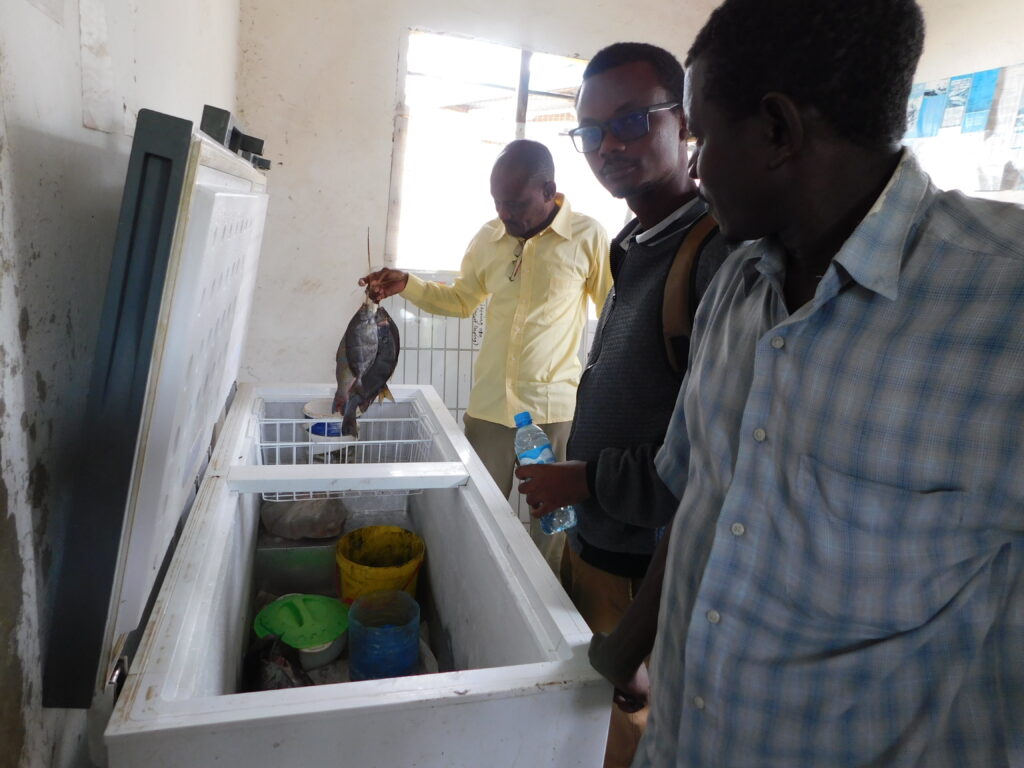
Mkwiro BMU Chairperson Omar Makame displaying some of the fish stored and ready for the market. In the middle is TuFAK National Coordinator Elijah Ngoa who visited and held discussions with the BMU officials. Photo credit| Mazera Ndurya
Fisheries experts are warning that a lot of illegal fishing is going on even at the small scale level through the use of illegal fishing gear and other harmful practices that impact negatively on the wellbeing of marine integrity.
According to Tuna Fisheries Alliance of Kenya (TuFAK) National Coordinator Elijah Ngoa IUU fishing is a serious threat to food security because the use of illegal gear such as beach seines and undersized fishing nets target undersized fishes and destroy biodiversity especially corals and the sea grass.
He spoke to Media For Nature in Shimoni after touring several sites within the Shimoni-Vanga seascape including Mwazaro, Shimoni, Mkwiro, Wasini, Kibuyuni, Majoreni and Vanga and engaged with members of Beach Management Units (BMU) on what the organization is doing and plans to do.
The purpose of the visit was to explain what TuFAK is doing to improve the wellbeing of small scale fisheries and their communities. This, he said, included their current programmes on Sustainable Blue Economy under its advocacy programme of ensuring fair and equitable sharing of fisheries resources, addressing Illegal, Unreported and Unregulated (IUU) fishing and promoting the implementation of sustainable blue economy.
The communities are doing much to address the problem including setting up patrol units but the challenge is that the surveillance is limited and in some cases they are taking only four patrols per annum.
“There is a long period that community co-management areas are unmanned thus increasing the opportunities for illegal fishing.
“At the small-scale fisheries level, there is a need for the Beach Management Units to be capacity built to undertake their activities robustly. Most importantly, it is paramount to sensitize the communities because they are the ones utilizing the resources.
“They need to understand the social, ecological and economic impact of IUU fishing. However, undertaking low cost patrol and surveillance requires resources. Therefore there is a need for the BMUs to come up with plans of generating resources to enhance patrols within their own co-management areas. Of course they will need technical support from institutions such as the Kenya Fisheries Service and multiagency actors like the Kenya Coast Guards Services,” said Ngoa.
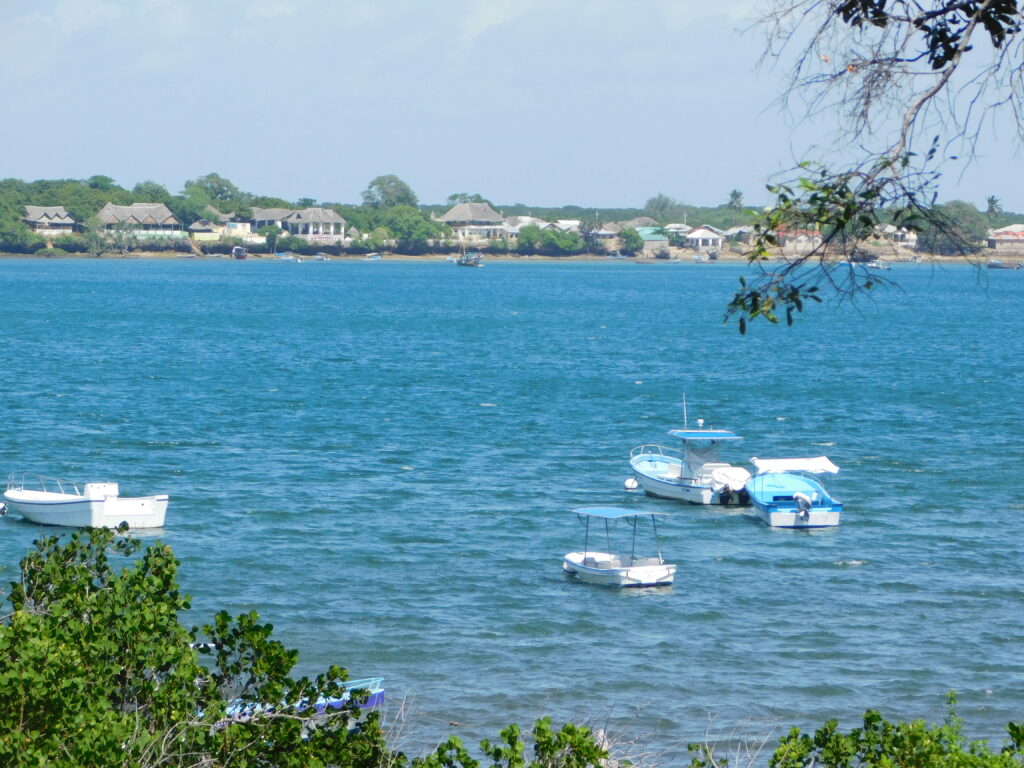
Part of the Shimoni-Vanga seascape where communities in Wasini and Shimoni have designated community co-management area for conservation. Photo credit| Mazera Ndurya
IUU fishing interferes with food web balances because the fishing gear targets undersize fishes and that means there will be limited recruitment of stocks to the productive levels.
“The illegal gear are destructive and lead to habitat degradation, mainly the seagrass, the corals and these are nurseries and forages for fishes and that means with the persistence of IUU fishing it means there will be a serious consequence which will impact on food security.
“It will also affect the ecological integrity of the ecosystem which will also affect other sectors like tourism which is also highly dependent on the ecological wellbeing of the marine ecosystem,” said Ngoa.
When the ecosystem is degraded it affects the people because it increases shoreline instability and this means people will be more susceptible to unpredictable storms therefore there is a need to address it early enough because it is a serious threat to the economy of this country.
Ngoa further emphasized the need to sensitize fishing communities on the importance of conserving marine space.
“There is also a need to come up with management plans and measures that will ensure that the fishing communities benefit from these marine protected areas.
“Many of the fishing communities especially the fishers have been opposing the expansion of the marine protected areas because they recognize them as tools to hinder them from accessing resources other than tools for increasing fisheries productivity and biodiversity conservation,” he added.
FACTSHEET
What is Illegal, Unreported, and Unregulated (IUU) fishing?
According to US based National Oceanic and Atmospheric Administration (NOAA) Fisheries, Illegal, Unreported, and Unregulated fishing activities violate both national and international fishing regulations. IUU fishing is a global problem that threatens ocean ecosystems and sustainable fisheries. It also threatens our economic security and the natural resources that are critical to global food security, and it puts law-abiding fishermen and seafood producers in the United States and abroad at a disadvantage.
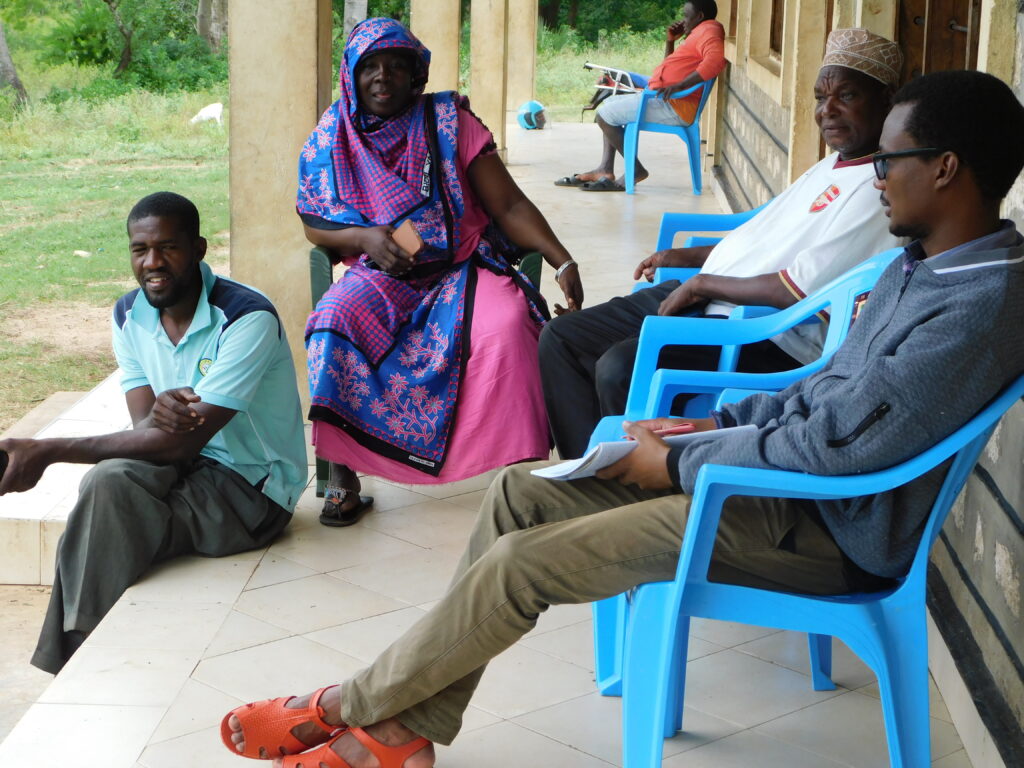
TuFAK National Coordinator Elijah Ngoa engaging with members of Majoreni BMU in Kwale County. Photo Credit| Mazera Ndurya.
Co-Management
Co-management is an approach to managing marine resources that involves the sharing of responsibility and authority between governments and local communities and may also include non-governmental organizations (NGOs) and research institutions.
Sustainable Blue Economy
To secure long-term social and economic stability, a sustainable blue economy aims to:
- Provide social and economic benefits for current and future generations, by contributing to food security, poverty eradication, livelihoods, income, employment, health, safety, equity, and political stability;
- Restore, protect and maintain the diversity, productivity, resilience, core functions and intrinsic value of marine ecosystem–the natural capital upon which its prosperity depends;
- Is based on clean technologies, renewable energy and circular material flows.
